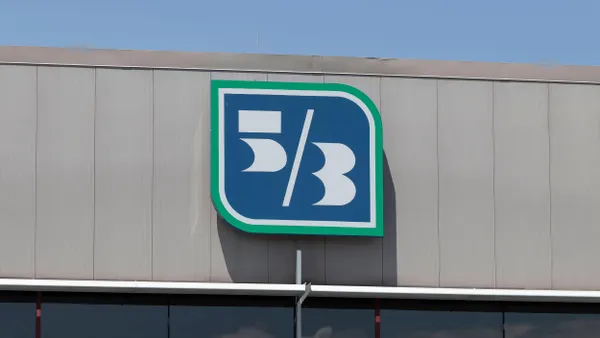Several trade groups representing banks and credit unions spoke out against the Office of the Comptroller of the Currency's plans to create a special banking charter for payments companies.
Acting Comptroller Brian Brooks told the American Bankers Association (ABA) last month the regulator plans to unveil a national money transmitter license which would offer nonbank payment companies "a national platform with preemption." Nonbank payment companies now must obtain a money transmitter license from each state in which they operate.
In a letter to Brooks, the group — which includes the ABA, Bank Policy Institute, Consumer Bankers Association, Credit Union National Association and Independent Community Bankers of America — said they had "serious concerns around the recent discussion of a narrow-purpose payments charter."
"These charters could introduce serious risks that would undermine the valuable role that national banks play in our dynamic economy," the groups wrote Wednesday. "We believe that a payments-focused charter introduces serious unintended consequences."
The groups said the regulator should take care not to introduce risks that would encourage regulatory arbitrage, and urged the OCC to be transparent in its process of considering a new charter.
"Any fintech company that is granted a national bank charter will receive the instant credibility that comes with being a chartered financial institution," the groups wrote. "Likewise, any missteps by a fintech operating through a national bank charter will inevitably reflect on all banks."
The groups sent the letter ahead of Brooks' scheduled speaking engagement with the Brookings Institution.
Brooks, who said the OCC would respond to the letter directly in time, addressed some of the group’s concerns during Wednesday's webinar.
"There will be no less transparency process here than there is with respect to the bank charter I signed this morning," Brooks said. "This is what we do here. We grant bank charters. We review applications pursuant to a set of rules. When the banks meet the rules, we grant the charter. I don’t think there is a lack of transparency."
There's a misunderstanding that a payments charter would be more lenient or offer breaks to payments companies, Brooks said.
The way he envisions the payments charter, if a company does a qualifying activity — deposit taking, lending or payments — as its primary activity, then it can be a bank, Brooks said.
"Not a special-purpose bank, but a bank with all the things that come with that," he said. "That includes capital rules, it includes [Bank Secrecy Act] compliance and community reinvestment-like requirements for financial inclusion.
"I think the misunderstanding that some of these trade groups are operating under is that somehow this is going to trigger a lighter-touch charter with fewer obligations, and it’s going to make the playing field un-level. I think it’s just the opposite," Brooks added. "I think what they’re watching right now is that some of their best businesses are migrating out of the system where they have much lighter obligations. I want to bring those things back into the system. If you believe in a level playing field, I’m your best friend."
Brooks also addressed the OCC’s plans for a fintech charter, another proposal that has garnered concern from bank trade groups.
The charter, proposed by Comptroller Thomas Curry in 2016, was struck down in October after the U.S. District Court for the Southern District of New York ruled the regulator lacks the authority to grant charters to nondepository institutions.
The OCC is appealing the court's decision, and Brooks said he’s "highly confident in the outcome."
"The OCC historically has been given deference by the U.S. Supreme Court in its definition of what proper bank activities are. It would be truly radical to hold that the OCC’s interpretation of what a bank is didn’t prevail," he said. "It doesn’t mean there won’t be twists and turns. We’ll win some and lose some on the way to the Supreme Court."














